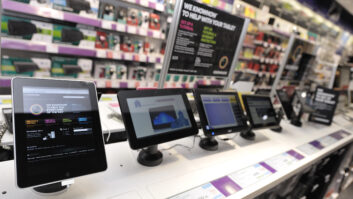 WFH, smart health, food, 5G, AI, and sustainability all will be hot tech trends in 2022, but what might really matter most is Matter
WFH, smart health, food, 5G, AI, and sustainability all will be hot tech trends in 2022, but what might really matter most is Matter
Thanks mostly to a carry-over of market conditions and market forces, most of the hottest tech in 2022 will be advances of the hottest tech of 2021. Thanks to the shift from forced to willing to desired remote work, work-from-home (WFH) tech will continue to expand, and smart health/fitness, bigger screen 4K and even 8K TVs, true wireless earbuds, wearables, food technologies, and software & services all will continue to be hot tech categories.
Perhaps more importantly, some fundamental structural technologies will insinuate themselves more and more into new products and services. These include:
- 5G: Both the number of 5G phones sold and 5G networks available are likely to top 50% in 2022, which will justify development and adoption in additional 5G applications and devices. “5G networks are expected to benefit industries in smart cities, infrastructure, education, and digital health,” notes Rick Kowalski, CTA director of industry analysis and business intelligence.
- AI: Nearly every consumer technology product we’ll see in 2022 will be smarter, more intuitive, and perhaps even more conversational. “By adding artificial intelligence and machine learning to devices and attaching services to hardware in homes, companies extend monitoring capabilities to consumers beyond standard access points,” observes Elizabeth Parks, president of Parks Associates. “These new services add benefits of security, convenience, and information for consumers.”
- Sustainability: Both governments and business are responding to consumer demand for more environmental responsibility, including how and of what materials devices are made, and how they’re packaged. “Consumer awareness is definitely rising in terms of supporting sustainable businesses, especially among millennials/Gen Z and the affluent,” asserts Ross Rubin, principal analyst at Reticle Research.
But no technology trend is newer for ’22, more anticipated, and more potentially impactful, than Matter.
 Does Matter Matter?
Does Matter Matter?
Matter is a protocol created by the Connectivity Standards Alliance (CSA), formerly known the Zigbee Alliance, that would make all smart home devices, regardless of their walled ecosystem, interoperable. The concept is almost impossible to contemplate: Amazon, Apple, Google, and Samsung all deciding to play nice with each other.
There is industry agreement that lack of interoperability is stalling consumer uptake of smart home devices. “The only thing that ‘matters’ is ease of use and interoperability,” insists Stephen Baker, NPD VP and industry advisor. “This protocol will make it easier for consumers to mix and match smart home devices and make choices based on the device itself and not feel committed to one platform or another because of what they currently own.”
At CES, expect to see the first wave of Matter-compatible products, but many operational questions remain. Will there be a single Matter app? How backward compatible will legacy smart home products be? Will Matter bridges or hubs be necessary?
And, perhaps the most pressing question, can these carnivorous tech behemoths really all work together?
“Most predominant technology standards have been established through competition, where the most adopted one prevails” observes Kevin Collins, Accenture’s Software & Platform Services industry managing director. “However, it’s clear that the connected home market desperately needs one or two standards to emerge. Matter could have the opportunity to link competing ecosystems together, which would be powerful.”

Keeping Amazon’s, Apple’s, Google’s, and Samsung’s collective corporate eyes on the interoperability prize is challenging enough. But CSA needs to convince third-party device, service providers, and eventually consumers that Matter matters. All of this will take time.
“Apple, Google, Samsung, and Amazon all have good reason to see smart home adoption grow far past where it is now, and standardization is the route to that,” insists Jonathan Collins, smart home research director at ABI Research. “The impact of Matter is already underway in the product development and strategies of smart home players across the market. We expect it will be quickly supported with compliance products, applications, and roadmaps. That said, [Matter’s] impact will be more gradual rather than a sudden spike in spending.”
Tempering Matter expectations will likely last until the concept is proven in the marketplace. “No one can force or hold anyone to the standard,” says Robert Heiblim, partner and co-founder of Blue Salve Partners and chair of CTA’s Small Business Council. “Unless they harmonize the message and packaging, no one will know or care. Yes, Matter is nice, but I am skeptical it will make much impact, at least in 2022.”
See also: Another View: Alternative Payment Methods Are Here To Stay













